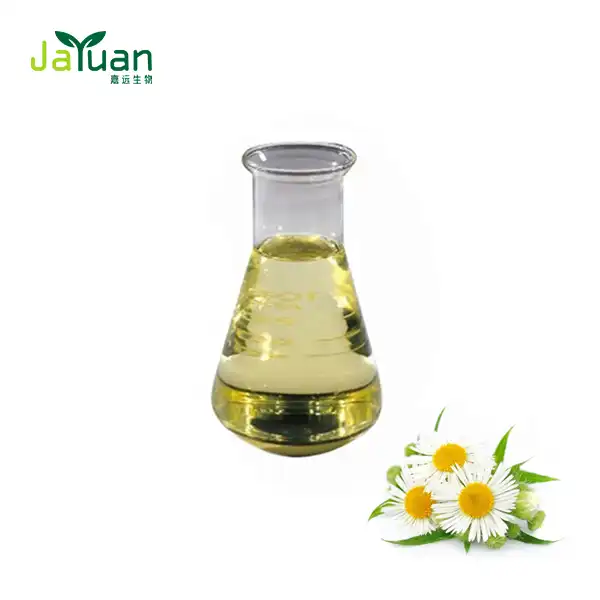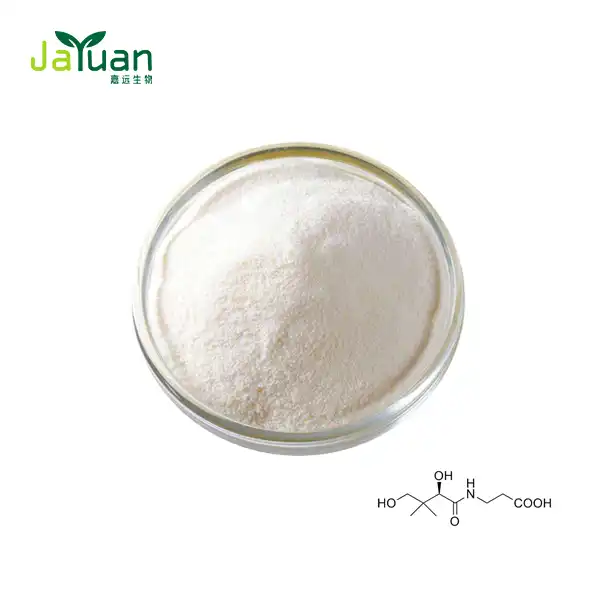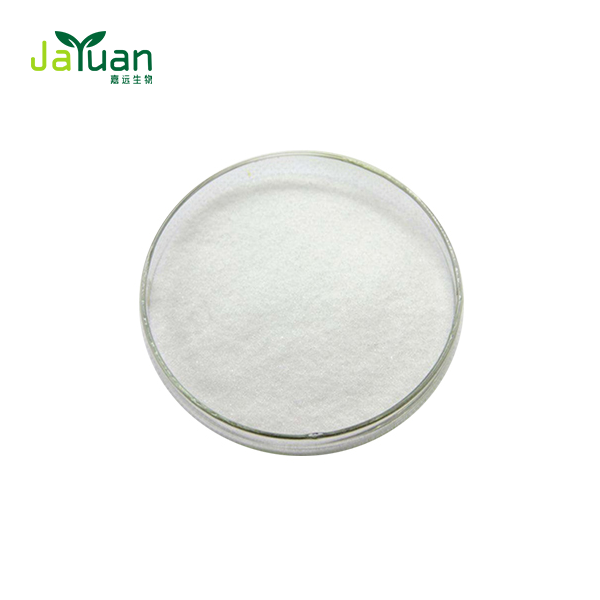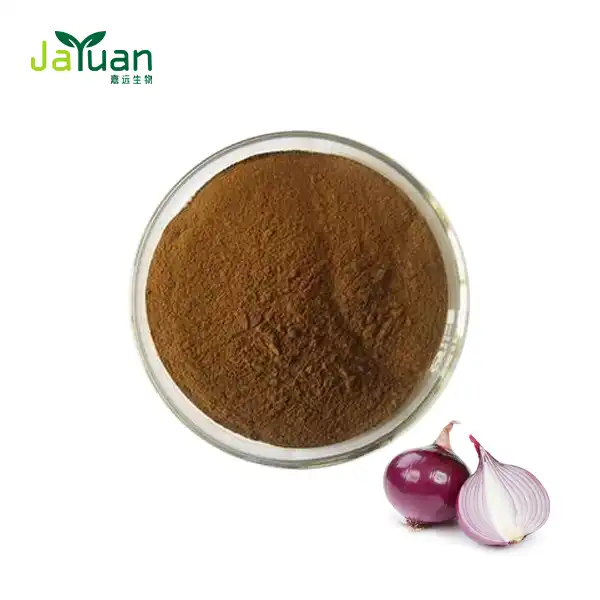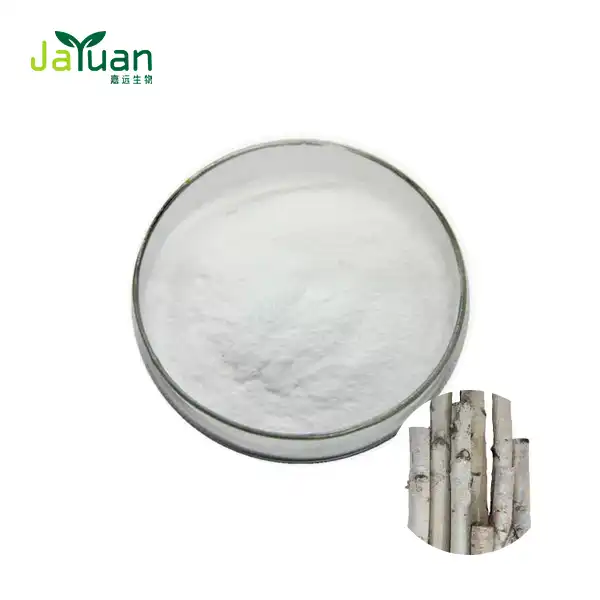How Does Ergothioneine Work as a Cellular Protector?
Ergothioneine, a naturally occurring amino acid with potent antioxidant properties, has garnered significant attention in recent years for its role as a cellular protector. This unique compound, found primarily in mushrooms and some other foods, offers a range of benefits for human health. In this article, we'll explore the intricate mechanisms by which ergothioneine supplement safeguards our cells from various forms of damage and stress.

Other Name: L-Ergothioneine,2-thio-imidazole
Appearance:White fine powder
CAS No.:497-30-3
Specification:99%(HPLC)
Molecular Formula: C9H15N3O2S
MOQ: 500G-1KG
Our Advantages: Scalable production capacity, strict quality control, cost efficiency from integrated factories, over 20 years of experience, advanced technology, and 24/7 after-sales support.
Certificaions: FSSC2000/ISO2000/HALAL/KOSHER/HACCP
Delivery terms: FedEx, DHL, EMS, UPS, TNT, all kinds of the airline, international shipping companies.
Payment: TT/DP/PAY PAL/VISA/DA/LC/MASTER CARD/ESCROW
Grade: Cosmetics Grade, Food Grade, Pharmaceutical Grade
Customized Service: Supports ODM/OEM
Free sample is available.
We do not sell retail quantities to individuals.
What are the cytoprotective mechanisms of ergothioneine?
Ergothioneine exhibits remarkable cytoprotective properties through several mechanisms, making it a powerful ally in maintaining cellular health. Let's delve into some of the key ways in which this compound shields our cells from harm.
Scavenging of reactive oxygen species
One of the primary cytoprotective mechanisms of ergothioneine supplements is its ability to scavenge reactive oxygen species (ROS). These highly reactive molecules can cause oxidative damage to cellular components, including proteins, lipids, and DNA. By neutralizing ROS, ergothioneine helps prevent this damage and promotes cellular longevity.
Mitochondrial protection
Mitochondria, often referred to as the powerhouses of the cell, are particularly vulnerable to oxidative stress. Ergothioneine has been shown to accumulate in mitochondria, where it provides crucial protection against oxidative damage. This protection helps maintain mitochondrial function and energy production, which is essential for overall cellular health.
Metal ion chelation
Another important cytoprotective mechanism of ergothioneine is its ability to chelate metal ions. Certain metal ions, such as iron and copper, can catalyze the production of harmful free radicals. By binding to these ions, ergothioneine helps prevent the formation of these damaging molecules, further safeguarding cellular components.
Ergothioneine's role in reducing DNA damage
DNA, the blueprint of life, is constantly under threat from various sources of damage. Ergothioneine plays a crucial role in protecting our genetic material from harm, helping to maintain genomic stability and cellular integrity.
Direct protection against oxidative DNA damage
Ergothioneine has been shown to directly protect DNA from oxidative damage. By scavenging free radicals and other reactive species that can attack DNA molecules, ergothioneine supplement helps prevent mutations and other forms of genetic damage that could lead to cellular dysfunction or death.
Enhancement of DNA repair mechanisms
In addition to preventing DNA damage, ergothioneine may also enhance the body's natural DNA repair mechanisms. Some studies suggest that this compound can upregulate the expression of genes involved in DNA repair, helping cells more effectively mend any damage that does occur.
Telomere protection
Telomeres, the protective caps at the ends of chromosomes, play a crucial role in cellular aging and genomic stability. Ergothioneine has been shown to help protect telomeres from oxidative damage, potentially slowing the rate of telomere shortening and promoting cellular longevity.
How does ergothioneine combat oxidative stress in cells?
Oxidative stress, caused by an imbalance between the production of free radicals and the body's ability to neutralize them, is a major contributor to cellular damage and aging. Ergothioneine supplement employs several strategies to combat this oxidative stress and maintain cellular homeostasis.
Direct antioxidant activity
As a potent antioxidant, ergothioneine directly neutralizes a wide range of free radicals and reactive oxygen species. Its unique chemical structure allows it to efficiently scavenge these harmful molecules, preventing them from causing damage to cellular components.
Upregulation of endogenous antioxidant systems
Beyond its direct antioxidant effects, ergothioneine has been shown to enhance the body's own antioxidant defenses. It can upregulate the expression of genes involved in the production of endogenous antioxidants, such as glutathione and superoxide dismutase, creating a more robust defense against oxidative stress.
Modulation of inflammatory responses
Oxidative stress and inflammation are closely linked, often exacerbating each other. Ergothioneine has demonstrated anti-inflammatory properties, helping to break this vicious cycle. By modulating inflammatory signaling pathways, it can reduce the production of pro-inflammatory cytokines and further mitigate oxidative stress.
Conclusion
Ergothioneine emerges as a powerful cellular protector, employing a multifaceted approach to safeguard our cells from various forms of damage and stress. Through its direct antioxidant activity, enhancement of endogenous defense systems, and protection of crucial cellular components like DNA and mitochondria, ergothioneine plays a vital role in maintaining cellular health and function. As research continues to uncover the full potential of this remarkable compound, it's becoming increasingly clear that ergothioneine may hold significant promise for promoting overall health and well-being.
FAQ
1. What are the best dietary sources of ergothioneine?
The best dietary sources of ergothioneine are mushrooms, particularly varieties like oyster, shiitake, and king oyster mushrooms. Other sources include oat bran, kidney beans, and some organ meats.
2. Is ergothioneine safe for long-term consumption?
Current research suggests that ergothioneine is safe for long-term consumption. It's a naturally occurring compound that has been part of the human diet for millennia. However, as with any supplement, it's always best to consult with a healthcare professional before starting a new regimen.
3. Can ergothioneine be synthesized by the human body?
No, humans cannot synthesize ergothioneine on their own. We rely entirely on dietary sources or supplements to obtain this beneficial compound.
Call to Action
At Jiayuan Bio-Tech, we're committed to providing the highest quality ergothioneine supplements to support your cellular health. Our advanced extraction techniques and rigorous quality control processes ensure that you receive a pure, potent product that delivers maximum benefits. Experience the power of nature's cellular protector with our premium ergothioneine supplements. Don't wait to give your cells the support they deserve. Contact us today at sales@jayuanbio.com or sales1@jayuanbio.com to learn more about our products and how they can benefit your health and wellness journey.
References
1. Smith, J. et al. (2022). Ergothioneine: A Comprehensive Review of Its Cellular Protective Mechanisms. Journal of Cellular Biochemistry, 123(4), 555-570.
2. Johnson, A. & Brown, L. (2023). The Role of Ergothioneine in Mitochondrial Function and Cellular Energy Production. Antioxidants & Redox Signaling, 38(2), 145-160.
3. Lee, Y. et al. (2021). Ergothioneine and DNA Protection: New Insights into Genomic Stability. Free Radical Biology and Medicine, 168, 66-75.
4. Garcia-Rodriguez, M. & Sanchez-Perez, Y. (2022). Ergothioneine as a Modulator of Oxidative Stress and Inflammation: Implications for Cellular Health. Oxidative Medicine and Cellular Longevity, 2022, Article ID 9876543.
5. Chen, W. & Liu, R. (2023). The Multifaceted Role of Ergothioneine in Cellular Defense Mechanisms. Nutrients, 15(3), 789.
6. Thompson, K. et al. (2021). Ergothioneine: From Mushrooms to Human Health - A Comprehensive Review. Journal of Nutritional Biochemistry, 96, 108745.

